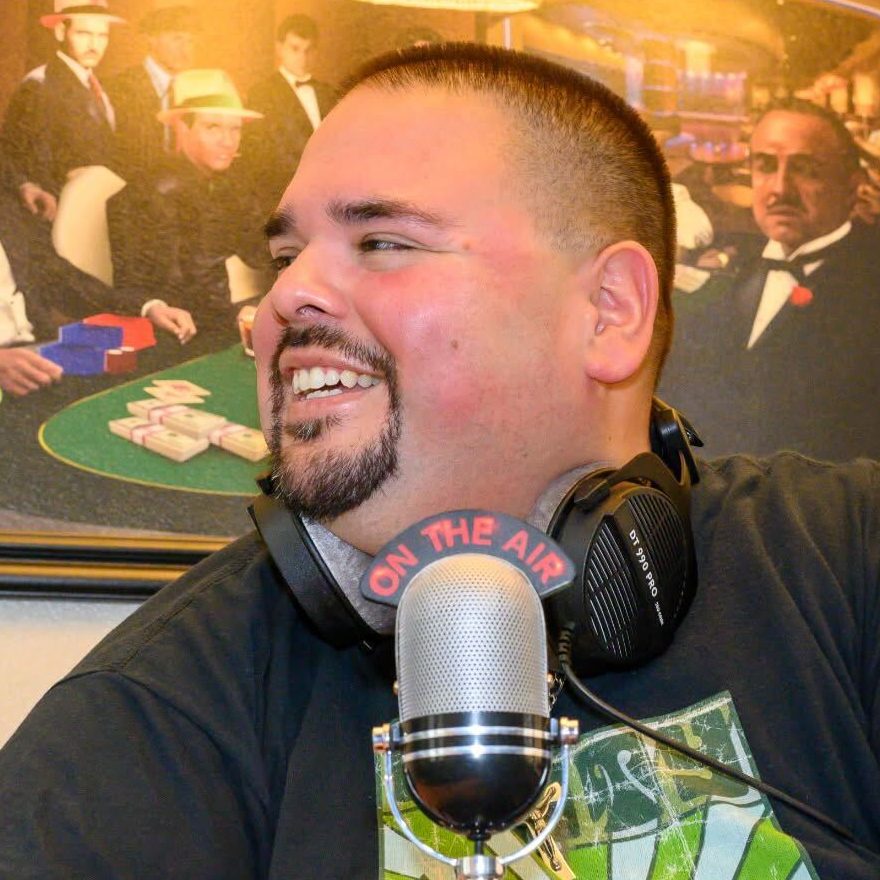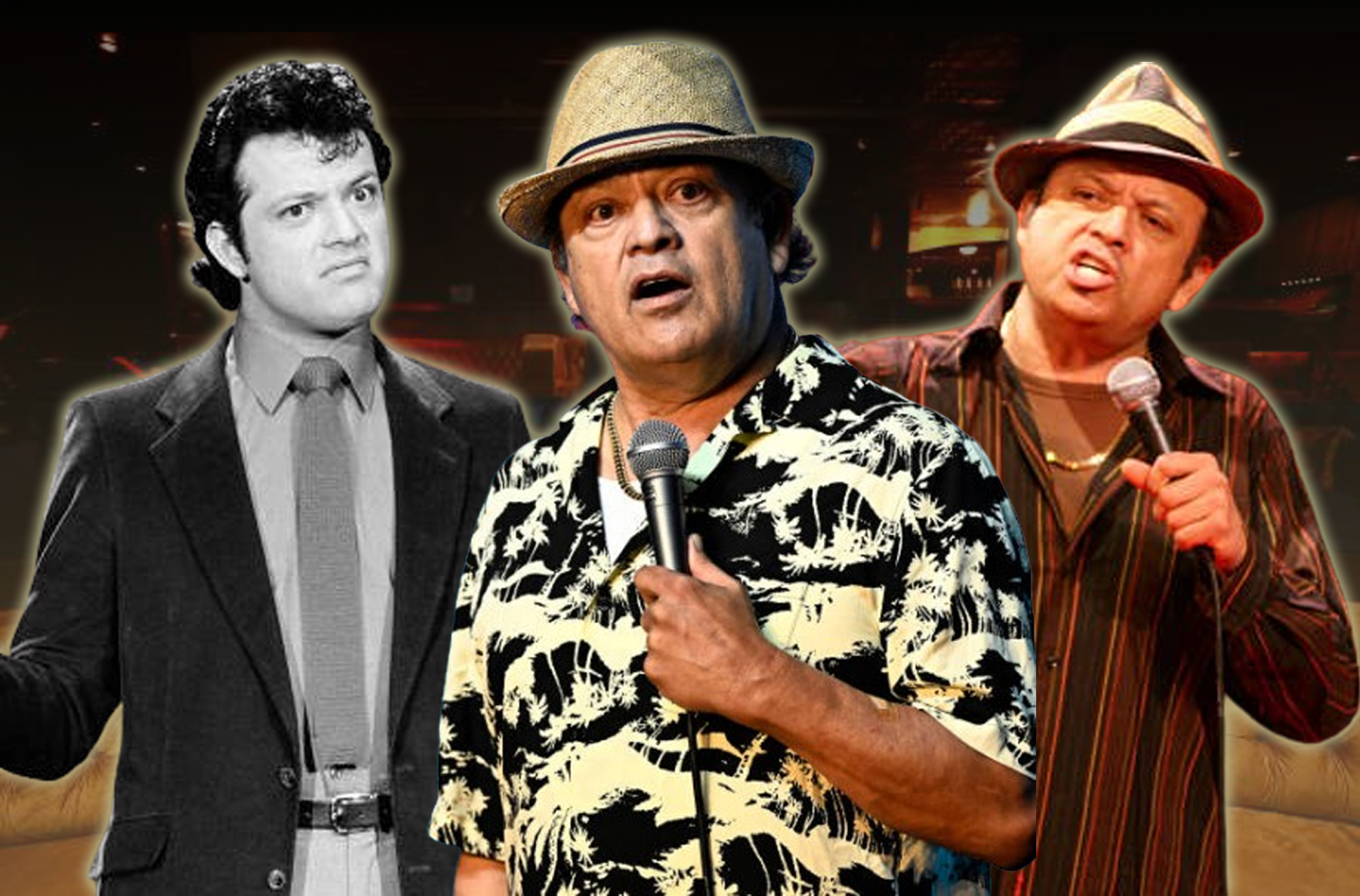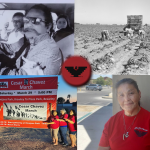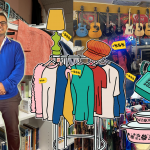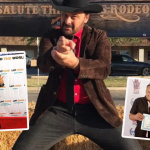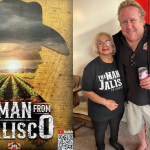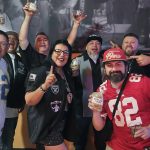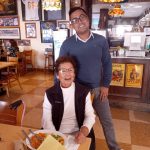edited by sarina e. guerra
Sporting an old school fedora, pin striped navy coat, jeans and sleek, athletic-hybrid-dress shoes, the comedy icon that is Paul Rodriguez spryly bounded up the stairs to take the stage of Prestige Event Center here in Heber for one final time, ending a decades-long career performing live, standup comedy.
At 70 years old, Paul Rodriguez was last seen locally in concert in the Imperial Valley 17 years ago for the Police Athletic League prior to his May 17, 2025, date in Heber, having first come to the Valley by invitation from Rodriguez’s long-time friend, former ECPD policeman, Eric Scoville.
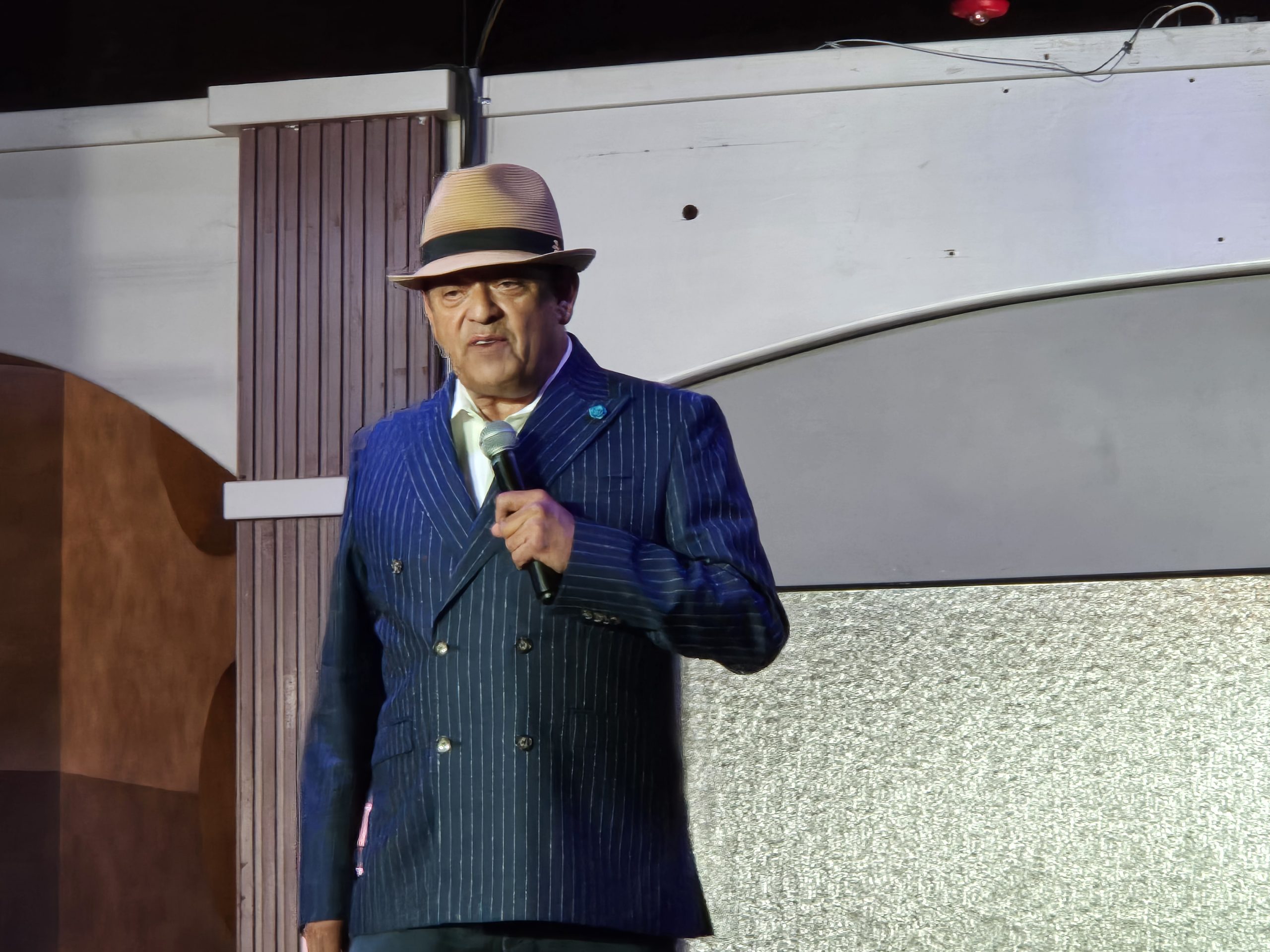
Photo courtesy of Roman Flores
Rodriguez’s final live performance was filled with his signature comedic takes on growing up as an immigrant in the US, emigrating as a young child while navigating Mexican family dynamics, coming of age in Los Angeles, being Catholic in today’s society, experiencing old age and embracing mixed feelings about certain medical procedures. Rodriguez left his Imperial Valley audience in stitches, ending the night with well-wishes for his fans and a standing ovation from a crowd of locals, coming off stage to a lengthy line of Raza looking to snap a pic with the iconic Latino legend of comedy and film.
On behalf of People’s Press, I was lucky enough to catch not only his swan song performance in standup, but also Rodriguez’s final post-show interview, capping the end of his 42 year-long career as a standup comic and closing out his “Redemption Tour” while he continues to promote his independently released film…

…now streaming on various platforms.
From his thoughts on AI, politics, and Latino culture, to his health, parenting, and recent arrest in Burbank, below is what the iconic Latin King of Comedy shared on his final farewell to standup.
(And yes, El Jefe did call me “Fluffy” when I walked in to interview him 😉)
***
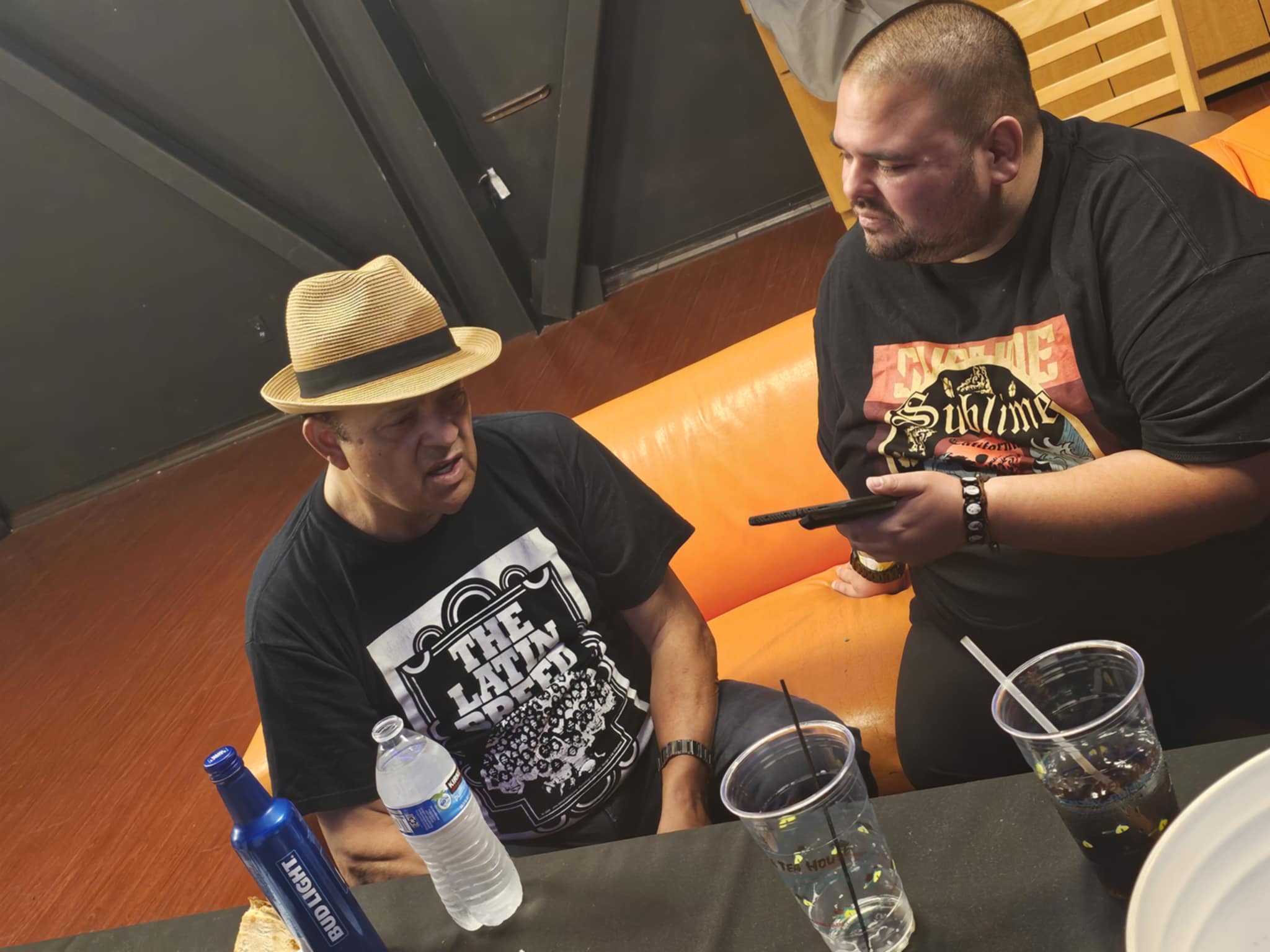
Photo courtesy of Diahna Garcia-Ruiz
Roman: Prior to tonight, when was the last time you were in concert in the Imperial Valley?
PAUL: “It’s been about 17 years now. Because of Eric Scoville, I would play every year at the police program in El Centro.
They’re all grown up now. Every year I get letters from people who say, ‘Hey man I saw you when I was a junior with Sergeant Scoville,’ and they tell me what they’ve done with their lives. I run into them every once in a while in Chicago and New York. ‘Hey, you know, I’m from the Valley aye.’ ‘I’m from Heber,’ ya know? ‘I’m studying at MIT.’
They’ve made something with their lives – a lot of them firemen, a couple of dentists, you know.
It makes you feel good because it’s like planting a seed and you get to see that tree grow.

Roman: Why hang up the mic now?
PAUL: “I can see my days coming to an end because of things physically; my heart just can’t take it no more. Every dog has his day, and I’ve been around for a while. I don’t travel so much now.”
Roman: When did you have that quadruple bypass operation on your heart?
PAUL: “About two years ago and it’s a miracle I survived.
I was going to go home, and I had just come [back] from Canada doing a TV series. I was at a golf course with a doctor who is really one of my best friends, Dr. Agron. He said, ‘Let me check your blood pressure’ and then he said, ‘You’re about to have a heart attack.’ I felt dizzy.
From there, he took me to Humana Hospital. Two hours later, I was under the knife.
My arteries were clogged. I had a quadruple bypass. They took an artery from my leg and put it in my heart. After that surgery I felt young again. It gave me another 10 years. I feel strong.
If it wasn’t for him, I’d be gone.”
BORN AGAIN IN…HOLY CASH?
Roman: You mentioned your independently released movie, “Holy Cash.” Tell me about it.
PAUL: “I was in the hospital after my operation and I was kind of depressed and my son came to me and said, ‘Dad, I read that in order for you to recover you have to have an interest – something to look forward to.’
I was going to do Born Again in East LA, but the studio wanted too much money, so I rewrote the script and called upon my old comedian friends, and they all said yes.
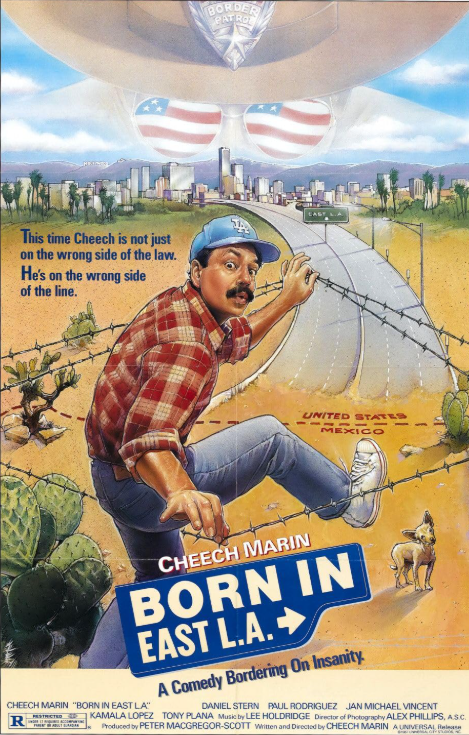
Credit: IMDb
We shot it for a little under $2 million dollars. It’s one of the first independent movies that played in theaters and in hotel rooms, and now it’s on Amazon.
It made history because I went to other studios and they wanted to buy the script, they thought the script was funny, but they didn’t want me in it; they wanted to cast somebody else. The [big studios] wanted to buy the script and throw it away to not have Latinos out there, they do it all the time…

I found private investors. Over the years I got to meet a lot of Latino businesses – some of them super rich and some of them not so rich – but every one of them [wanted to contribute to this project]. A dentist threw in [some money], my son threw in money, my doctor who operated on me threw in money, the manager for Los Bukis threw in; and everyone is making their money back.”
Roman: So it was really grassroots then, the way it came together. That’s great.
PAUL: Yeah. You know a lot of people criticize Hollywood, that Hollywood doesn’t do this or that for us, but I’ve always been the kind of guy that says, ‘If you want to do something you do it yourself if it’s good enough.’
I did A Million to Juan for under $100,000, and it’s stood the test of time.
I just finished one called Roxy and the Man, which is about an old man dying of cancer with his dog.
I believe that technology has come to the point where you can make a high-quality movie with your iPhone. All you need is the actors, the stars and a story. Money is really inconsequential.
I don’t use AI because it doesn’t really have the heart. So far, only human beings can feel.
Some of these scripts that come out of Hollywood that are written by AI are amazing. You say to yourself, ‘How can this machine have that level of consciousness?’
As long as I live, I want to make sure that writers write with what it is they’ve gotten from the past, you know? The smell of a menudo, making a tortilla, that they know what it is to…”
‘EL CHENTE’ QUE NO ERA GENTE
Roman: Sing rancheras with a mariachi?
PAUL: “Yeah. Although in Japan I saw a robot that was dressed as Vicente Fernandez, and I knew the real Vicente Fernandez.
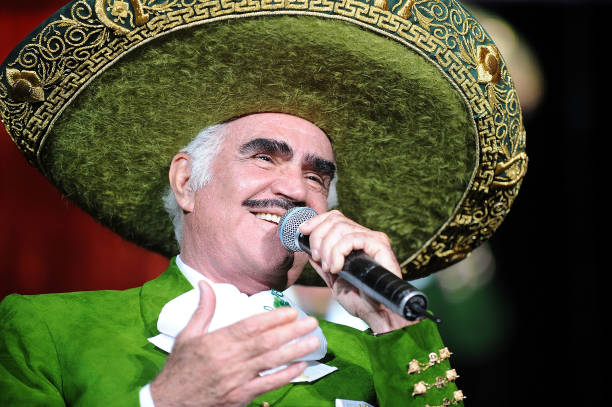
Photo courtesy of Olivia Salazar/WireImage
This sucker was amazing. It brought up pictures of him and I, and [it spoke/sounded like Chente]. It scared me. It was like somebody took your soul and put it in a machine, ya know?
Roman: That is kinda scary.
I don’t know where the future is going, but I won’t live to see that.
Roman: You’re just enjoying life while you’ve still got it huh?
PAUL: “Yeah, I don’t want to be downloaded into no computer.
I think as long as mankind can keep their soul, we’re going to be OK. The day we give that up, it’s over. Faith in God…

RODRIGUEZ: COMEDY, POLITICS & PARENTING
Roman: As a comedy veteran, what is the difference in the comedy landscape today compared to years past or when you first started?
PAUL: “I think funny will always be funny. A pie in the face will always make people laugh.
I think now what sectionalizes it is…. I think Blacks talk about their own condition in their own language, and it’s sad to see that Latino comedians try to emulate like that. It’s sad for me because we have such a rich Latino culture that they should reach back into their abuelos’ past and find beauty in that.
We should not copy others. Blacks have their own culture, God bless, but I don’t know that culture.
I want to dig back to what it is to be a Mexican-American: the memories of César Chávez, to what brought us here, and fight the powers that try to scare us.
It’s scary that the government now is trying to denationalize children that are born in America. We should fight for that. I think the constitution is right: once a woman’s water is broken on American soil, as far as I’m concerned, that child is an American.
We should fight to stop [the denationalization] from happening, because the day that happens then it will stop being America.
America is a country that is made up of all the [ethnicities and] nationalities in the world; that’s what our Founding Fathers had in mind. We’re a microcosm of the world. Whatever means you came from to be here, they yearn to be free, and so far, this is the only country that can offer that. We should not close that door.
There’s a lot of good about Trump, there’s a lot of bad about Trump, but we can discern what’s right. Look at the choices we had. …When I vote I don’t have time to look at all the issues, if there’s a ‘z’ at the end of your name you get my vote. That’s what it is.
A lot of people accused me of being a Trumpster…Latinos criticized me because…I really admired Ronald Reagan. And the truth is he said that Hispanics are natural Republicans, and we didn’t know it. We believe in small government and self-actualization, picking ourselves up. So far, the Democratic party is a disappointment because they believe in ‘stay at home and we’ll give you money.’

…I raised my son to know what it is to earn a dollar, and the proof is in the pudding.
…Rich kids’ children become lazy, and that’s the worst thing you can do to your kids. You want to let them have a sense of having to earn, because if something comes easy to you it’s easy to lose.
There’s joy in working hard for a day and knowing the value of your hard work.
…I wanted my son to have a good education, live well and dress well, but not to have money for nothing; I wanted him to earn his money. And it’s because of that, I believe, he became a great businessman and successful. He wanted to carve his own way, not to copy his dad. He chose the field of sports and succeeded in that, and that’s what we should do.
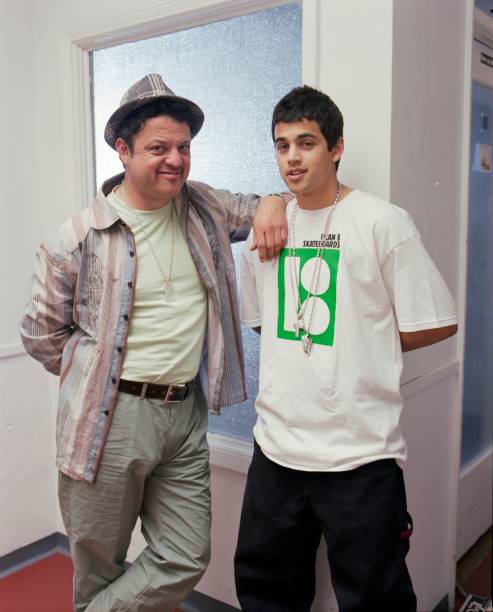
Courtesy of Gregory Bojorquez/Getty Images
I think that Latinos who become wealthy and want to make their kids not work are doing them a disservice, because easy come, easy go. You have to know what it is to have a back that hurts from working hard. You have to learn to appreciate things.
“You can’t raise them to believe that things come free in life. Strive to be the best.”
Roman: Why does someone get into comedy to begin with? What started you in comedy?
PAUL: “Necessity is the mother of invention. I never really wanted to go into comedy, I wanted to become an attorney, but I was realistic with myself. My parents were in terrible poverty, raised in Compton with a lot of crime.
My goal was for my mom not to go to her grave without knowing what it is to wear mink or own her own house. That was my goal.
I think for most Latinos, we always look back at our jefitos because they sacrificed for us. My mama cleaned the floors of the house that she owns now; that was her realized dream.
A lot of people give you advice, but the proof is in the way you live your life.
ON HIS RECENT ARREST & REPUTATION
PAUL: “Now recently I was arrested by the Burbank Police Department.
They besmirched my name. They said they caught me with drugs, and I want all your readers to know that that’s not true.
I am currently suing them.
I never had drugs in my possession. I’d be a hypocrite if I said ‘Don’t do drugs’ and I did drugs. Look, I’m 70 years old…

I went through all the craziness, but I want Raza to know that they should believe me and not believe the cops.
They’re dirty. I’m suing them. Before I go it’s going to cost them a lot of money and I’m going to use that money to publicize it and let everybody know.
They embarrassed me because my son read that they caught his old man with narcotics – they did not. I have never ever sold, used or approved it. They dirtied my name.
I want my day in court.
The proof is that the district attorney dropped all the charges, but even then [they labeled it] ‘insufficient evidence,’ which suggests that they found evidence, but that’s bullshit. They found NO evidence. There was NO evidence.”
Roman: Why would they come up with something like that?
PAUL: “Because I live in Burbank. Look it up, it is the most sued department. They stopped me because I happen to have a Bently. I wasn’t driving.
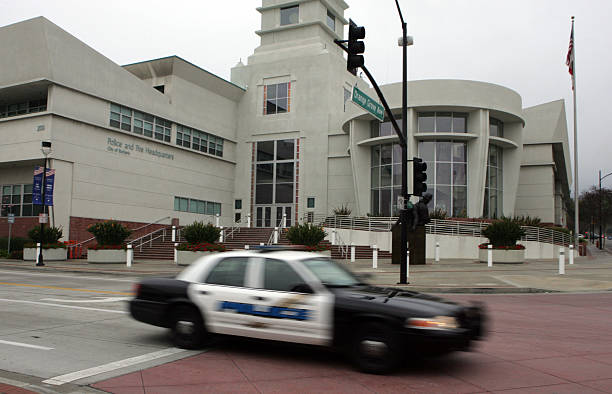
Courtesy of Glenn Koenig/Los Angeles Times via Getty Images
My neighbors, and the whole police department, are white.
And they hurt me. They slapped me. I was handcuffed and they slapped me.
I want to see that officer. I want him to explain to the judge why he laid his hand on me. I was never rude. I was always respectful. I didn’t say, ‘Do you know who I am?’ I wasn’t drunk. I wasn’t driving.

He told me to lace my fingers, he squeezed and I said, ‘You’re hurting me *******. Why are you doing this to me?’
When the video comes out you will see that even one of the officers says, ‘That’s enough, Howard.’
Then they recognized who I was and said, ‘Aren’t you that comedian?’ I said, ‘Not tonight. I will see you in court.’
Had it been anybody else, regardless of your race, police officers should not be allowed to wear a badge and a gun with that kind of discrimination.
I will see them in court. I will win. If I don’t, then our whole justice system is bullshit. I don’t happen to believe it’s bullshit.
When I leave Burbank it will be because I wanted to leave, not because they threw me out. Nobody is going to throw me out of any part of America.
I’m a veteran, a Vietnam veteran, and for them to treat me like that is sacrilegious to all veterans. I was drafted and I didn’t dodge; I served for six years, honorably.
And for them to treat me like that? They’re not going to get away with that.
It was easy for them to publicize all over the place that Paul Rodriguez was caught with narcotics. Now, why didn’t they publicize the fact that I had nothin’? I was clean.
What they did to me was murder my name. I’ma get it back…

FAMILY & THE DRUG WAR
Roman: You mentioned a bit about your family in your standup act. When did your family emigrate from Sinaloa to the US?
PAUL: My father took us out of Culiacán, Sinaloa [Mexico] because all of my family, unfortunately, was involved [at that time] in that [drug] trafficking. My father said it was nothing but death – that there was no future in that.
Sometimes I would do jokes on stage about how [we would say], ‘Hey, why did you bring us from Sinaloa? You didn’t want us to be rich?’ and my father would say, ‘I don’t want you to be dead.’ …you gotta do what you gotta do to live, but I don’t happen to agree with that.
Fentanyl is murdering us, and we should not be afraid to stand up against it – they can’t get all of us, ya know? At 70 I’m not really afraid of anything. What can they do to me?
Roman: How old were you when you came over?
PAUL: “I was almost three years old when I came over. I came over legally, and that is not to disparage all those that came over without documents. That doesn’t matter to me [and] I don’t judge you.
My father stayed for days – months, he slept there – in front of the US embassy in Sinaloa. He had no inheritance.
What I inherited from my father was…

…When I came out of [military] service, I used the GI bill, was going to college, then I went to Hollywood and the rest is history.
I want everybody to know that there are a lot of Latino comics coming up and a lot of them are going to be big stars. I have no animosity to George or none of them – they could all be big stars – but what they can’t be is first. [Because] first was me. I gave everybody the possibility to dream what could be. I never said I was the best, but every time you saw me, young Raza was looking at me going, ‘I could do that. I could be better than that,’ and that was OK with me.
Now that I’m at the sunset of my life, I hope that when I’m gone people will remember that somebody had to be first, and that was me.
I don’t take credit for their success, but I take credit that [my success] allowed them to see the possibilities – that the color of your skin should not limit you. I think that we’re just as smart as anybody else, and it starts with our parents telling us that.”
DAY’S END: WHAT’S LAST & WHAT’S NEXT
Roman: So you mentioned this might be one of your last shows…
PAUL: “It is my last. It is absolutely my last standup. The final.
I’m going to go back…I got the Diego Rivera [project]. If I live long enough, I will star in and direct it, and if I don’t, it’s in my will that my son will direct it and use the profits and all the things that I have, to go to that production….
“I want Latinos to know that money doesn’t make creative arts – it is the yearning, the will to do something.”
“So many people have told me ‘You did that because you’re Paul Rodriguez.’ Well I was always Paul Rodriguez [and] it was never the money, ya know?
There’s an old Mexican saying that was true then and is true today –

I want our children to know that those that yearn to be in show business, or whatever it is they yearn to be, that if they want something bad enough – and I mean really bad enough, a passion of theirs – that they can succeed. They don’t need the help of anybody else but their own yearning and belief.
It all begins in the home. …there’s a lot of power in that.
“I do feel that I won’t be long in my life. I feel my heart flutter and I need another operation…I don’t want to die, but I’m not afraid of it either. I did everything there is to do, and I did it first, ya know?
I didn’t do it best but I did it first, and that should count for something.
I hope people remember me as someone who always stood for Raza. I was one of the first ones to say, ‘Viva la Raza,’ ‘Órale’ and all that. There’s video of that, and I’m proud of that.”
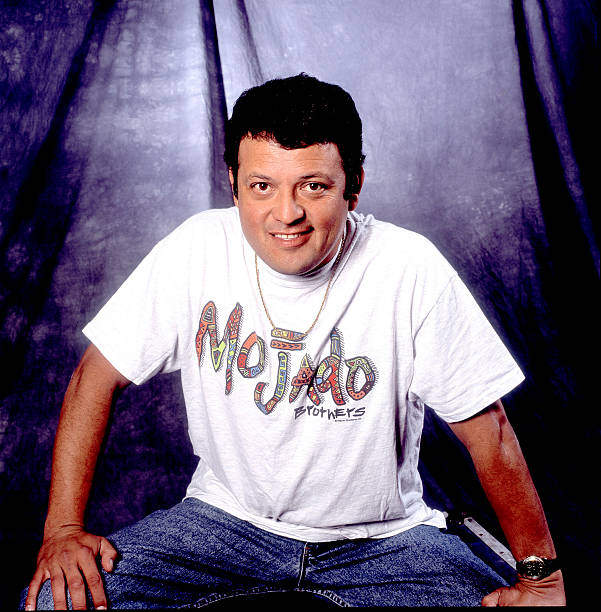
Courtesy of Paul Natkin/Getty Images
Roman: What made you want to do your last show here in the Imperial Valley?
PAUL: “Well somebody offered it to me and they said, ‘Where do you want to do it?’ I said, ‘Where I started.’

I did a lot of work for the PAL program.
I do believe that there’s so many of us [Latinos] that to call us a minority is ridiculous. I’ve been to every corner of this country. Hispanics, especially Mexicans, are huge [in population] in places like Maryland, Chicago, Atlanta and other places where you wouldn’t think [we’d be]. You’d be surprised.
When I was coming up, Corky Gonzalez and, you know, ‘the Sleeping Giant.’ Well, we’re not sleeping anymore.
…I think that we should support each other and we should be happy to see other Latinos succeed, and I’m saddened by the few Latinos that want to shut the door for everybody else – I won’t mention any other names. That’s a crime, a sin, and La Raza won’t forget that because they made you.
The reason I was able to have good things for my family wasn’t ‘cause of me, it was because of the Raza that showed their love.
I love to walk down the street and people go, ‘Hey you’re that guy,’ you know?
I don’t need security; I don’t take security around me…I have no person to fear. There’s very little I’m afraid of, only afraid of God.
I’ve been to every war zone. I’ve entertained the troops in Afghanistan. I’ve traveled the world three times, been to Japan, Guam, Africa…there are less countries that I haven’t been to than countries that I did go to, but I’ve always been me.
Roman: Yeah, I’ve heard the low rider culture is big over there.
Paul: The Japanese love our culture and I know because I’ve been there. …tons of Japanese came out at Osaka Airbase, I thought I was in a gang. They love us because we’re beautiful people, both inside and out.”
Roman: What are your plans now after finishing your standup career?
“Si Dios me presta la vida, I’ll be playing Diego Rivera. If not, I’ll cast somebody to play him, but I think I was born to play Diego because I have his voice and my acting is up to par. All I need now is the money to fund my next project.”
FAREWELL TO FANS AT FINALE
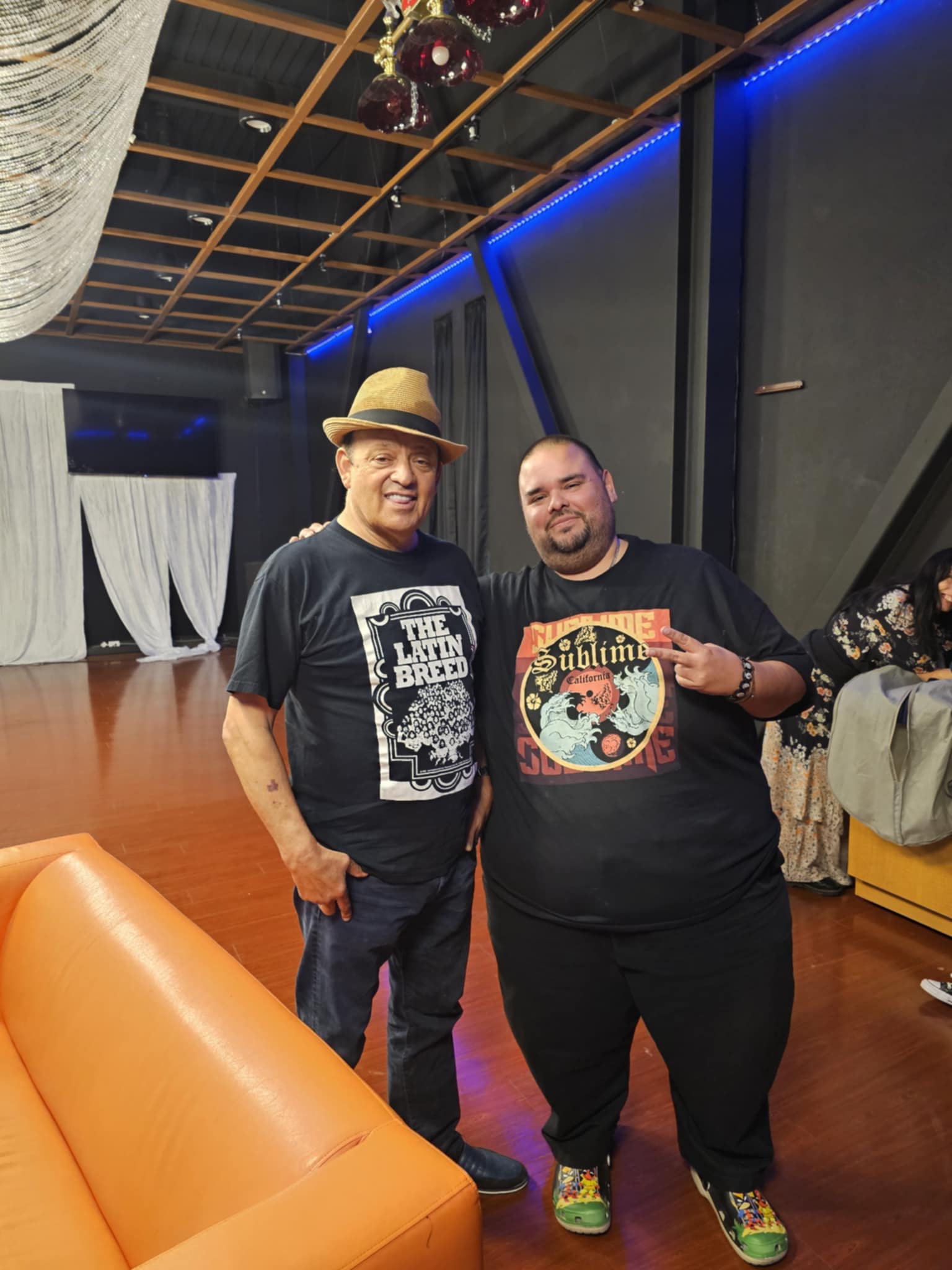
Photo courtesy of Diahna Garcia-Ruiz
Roman: Last thing – any final words to leave with your fans?
PAUL: “Thank you for the many years [having me] coming to the Valley. A lot of you grew old with me, a lot of you have kids…thank you for everything you’ve done for me. I hope you remember me…

The Paul Rodriguez written and directed movie, “Holy Cash,” is a “laugh-out-loud comedy where faith meets hustle in the most unexpected way” that stars Paul Rodriguez, Jay Mohr (Go, Pay it Forward, Jerry Maguire), Emilio Rivera (Mayans MC/Sons of Anarchy) and Art Bonilla, with appearances by comedians like Aries Spears, Felipe Esparza, and Carlos Mencia as well as actors Luis “Caveman” Guzman and Danny Trejo (Machete). “Holy Cash” is streaming on Apple TV, YouTube TV and Amazon Prime.
People’s Press contributor Roman Flores can be reached on Facebook or by email at romantflores@gmail.com.
